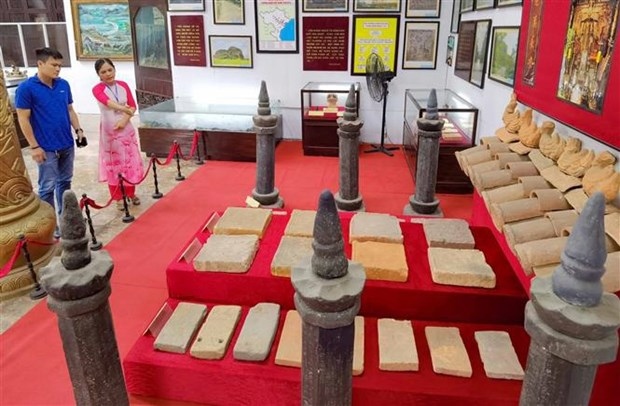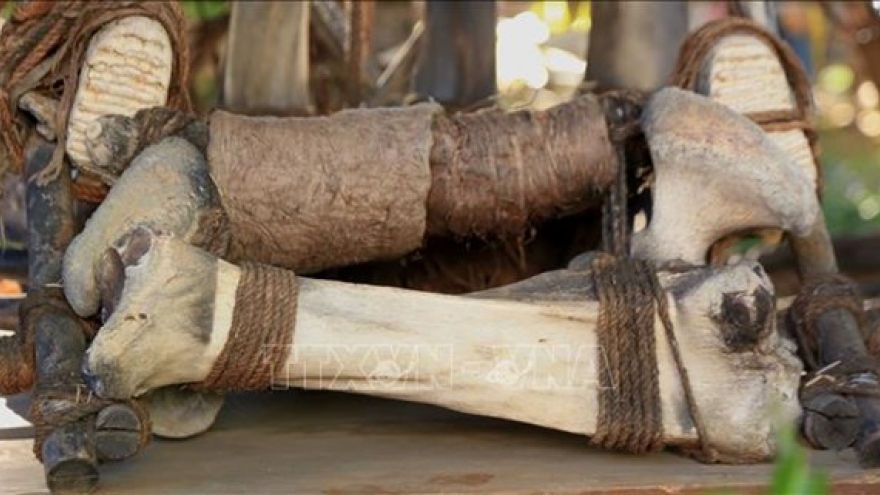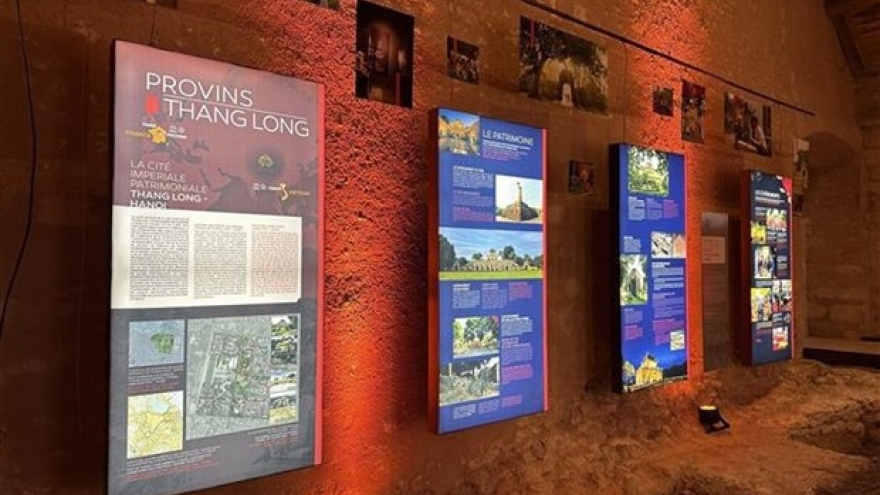Vietnam names additional 29 artifacts as national treasures
Deputy Prime Minister Tran Hong Ha on January 18 signed a decision recognising an additional 29 artifacts as national treasures.

The newly-recognised national treasures include a gold-star bronze drum of the Dong Son Culture dating back 2,000 years ago and the gold-plated An Dan sword of Emperor Khai Dinh (1916-1925), which are being kept at the Vietnam National Museum of History in Hanoi.
Several artifacts being preserved at the Thang Long – Ha Noi Heritage Conservation Centre earned the national treasure title, comprising "la de chim phuong" (dragon decorated by the Bodhi-leaf) roof tile, architectural terracotta model from the Le So (Early Le) Dynasty, a pair of stone dragons at the staircase of Thuong Temple (Co Loa citadel) from the Le Trung Hung (Restored Le) Dynasty.
Another national treasure is Kinh Hoa bronze jar dating back to the 2nd – 3rd century BC that is belong to collector Nguyen Van Kinh in Hanoi.
Also enlisted are Brahma My Son E1 Relief Sculpture, Shiva My Son statue and Tra Kieu Apsara Relief Sculpture in Da Nang city.
The national treasure title is also given to sets of Khanh Son ancient lithophone in Khanh Hoa province, a collection of golden artifacts of the Oc Eo Culture in Tra Vinh province, bas-relief of the Goddess Uma in the 9th-10th century of Bac Lieu province, among others.
Since 2012, as many as 294 objects and groups of artifacts have been recognised as national treasures.
According to the Law on Cultural Heritage, national treasures are bequeathed objects with extremely precious, rare and typical values in terms of history, culture and/or science. They are original and have a unique appearance, with special value related to a significant event of the country or the career of a national hero or an outstanding figure.
They also include works of art famous for their ideological, humane, or aesthetic values typical for a trend, a style, or an era. An outstanding invented product that has high practical value and promotes social development in a certain historical period can make this list, as well as natural items demonstrating the formation and development of the earth or nature.


